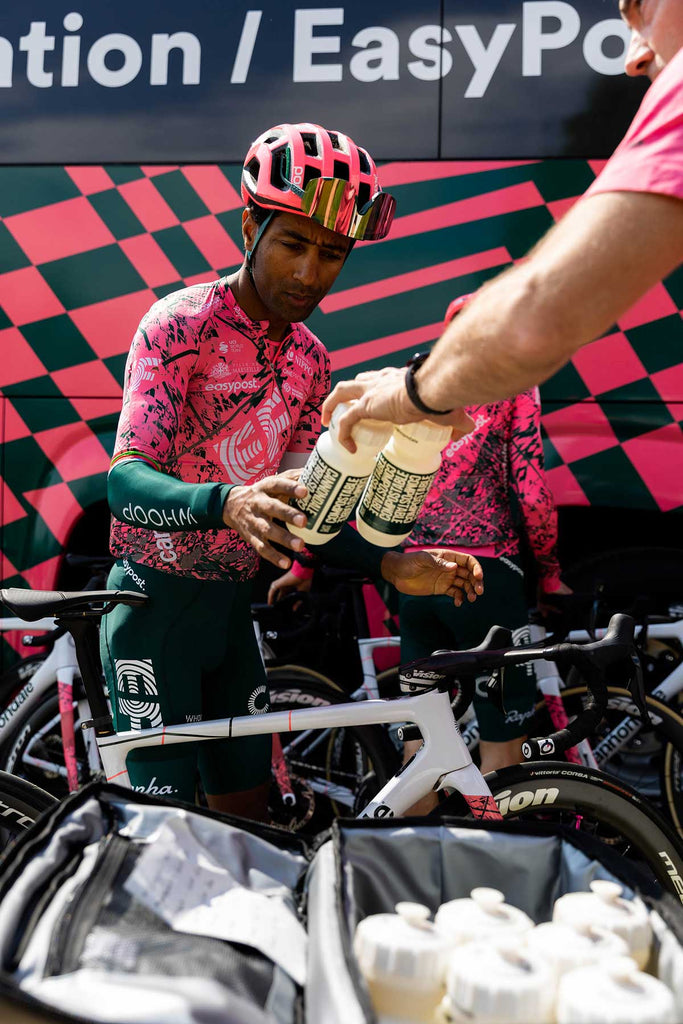Thirty-four thousand (yes, 34,000) bottles are used by the EF Education-EasyPost men’s team and the EF Education-TIBCO-SVB women’s team each year. That’s 755 bottles per rider per year based on the 45 riders in the men’s and women’s teams combined. That’s over two per day per rider.
Overall, an estimated 630,000 bottles are used in the professional peloton each year. In a changed world where the fear of germs and illness is even more heightened, the cycling circus is more wary than ever of reusing bottles, meaning many are being discarded after being used just once.
Related: Drinking on Tour, from the can-hunt to the sticky bottle
Of course, a few are picked up by fans at the side of the road, but the reality is that not every race is well attended by spectators, especially in the waste or feed zone areas where bottles are commonly dropped.
The statistics are undeniably jaw-dropping, and many of us will wince when thinking of how such waste will impact our already delicate environment. To the credit of the EF Education bike sponsors, Cannondale, however, they are beginning to look for a solution to the impact the professional peloton has on its surroundings. 
At the 2022 Giro d'Italia, Cannondale’s WorldTour team, EF Education-EasyPost will use 100% compostable bottles. Made from plant-derived materials, cap and bottle body of Cannondale’s new bidons are compostable, free from plasticisers, heavy metals and BPAs, making them both human and eco-friendly.
Cannondale explains that the bottle, as green waste, can disintegrate in as quickly as three months once it is exposed to microorganisms, heat and humidity in an industrial compost system. Of course, most of us don’t have one of those in our back gardens, so at home, this process will take 10-12 months (depending on the home compost system used.)
Related: Giro d'Italia 2022 Preview
Turning plastic bottles into green waste is a positive step towards reducing the huge carbon footprint that the professional cycling scene leaves in its wake as it moves from race to race. The team cars, buses, race banners, equipment, air miles and more mean that pro racing is a sport which is harsh on the surroundings which it relies so heavily on as a stage for competition. Compostable bottles aren’t going to solve this problem, and the work that needs to be done goes much further, but it’s a start.






























